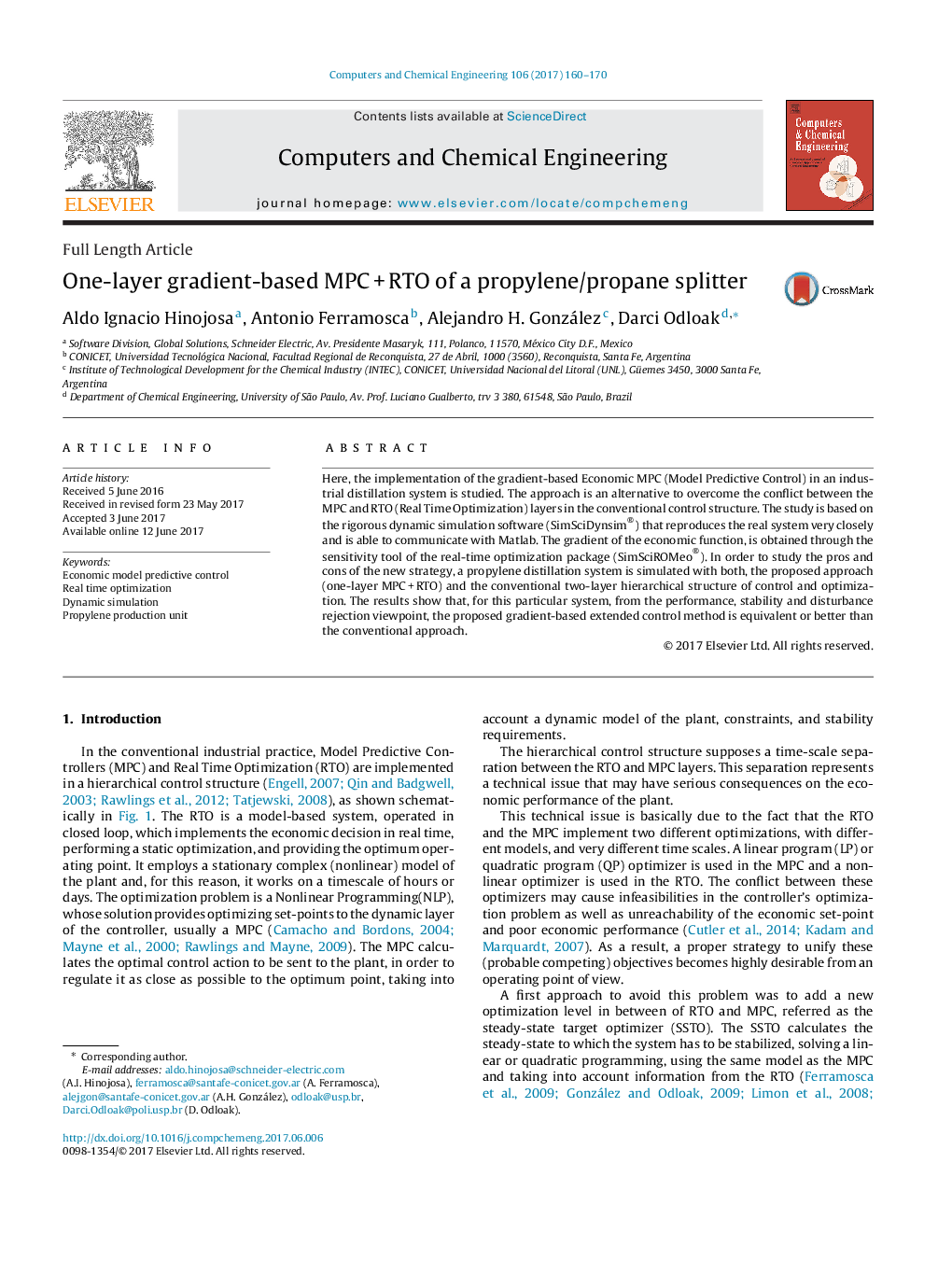| Article ID | Journal | Published Year | Pages | File Type |
|---|---|---|---|---|
| 6469043 | Computers & Chemical Engineering | 2017 | 11 Pages |
â¢Integration of RTO into the MPC.â¢Gradient based method is tested in a propylene/propane splitter.â¢A dynamic simulator is integrated with Matlab and the RTO package.â¢Results show that the method may be useful in practice.
Here, the implementation of the gradient-based Economic MPC (Model Predictive Control) in an industrial distillation system is studied. The approach is an alternative to overcome the conflict between the MPC and RTO (Real Time Optimization) layers in the conventional control structure. The study is based on the rigorous dynamic simulation software (SimSciDynsim®) that reproduces the real system very closely and is able to communicate with Matlab. The gradient of the economic function, is obtained through the sensitivity tool of the real-time optimization package (SimSciROMeo®). In order to study the pros and cons of the new strategy, a propylene distillation system is simulated with both, the proposed approach (one-layer MPCÂ +Â RTO) and the conventional two-layer hierarchical structure of control and optimization. The results show that, for this particular system, from the performance, stability and disturbance rejection viewpoint, the proposed gradient-based extended control method is equivalent or better than the conventional approach.
